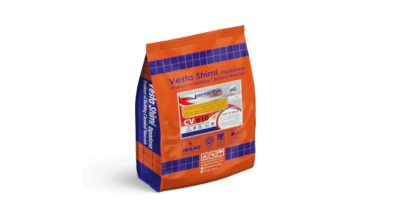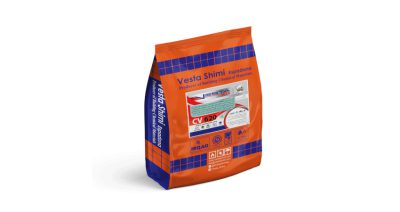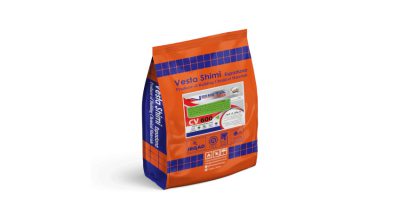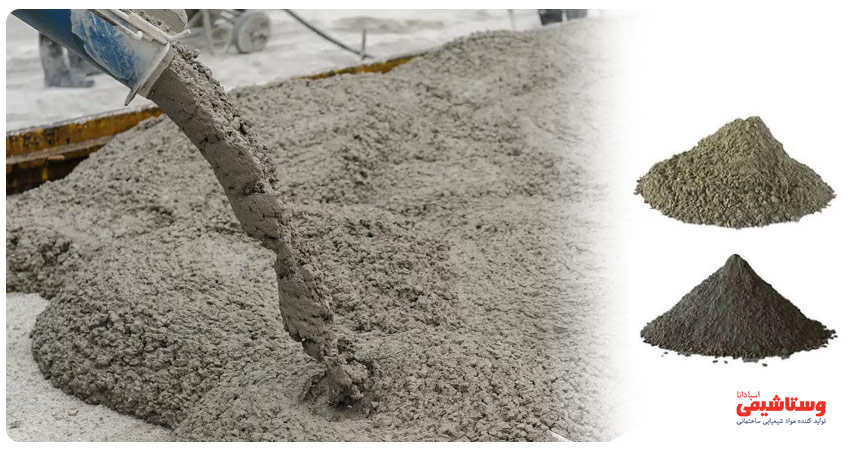031-36650701
Isfahan office
021-88561531
Tehran office
Cement grout is known as one of the most widely used materials in the construction industry, because this material has more resistance than concrete. The composition of cement grout includes a mixture of cementitious materials, ordinary portland cement or very fine cement, water, sand and other additives. This type of grout provides superior physical and mechanical properties compared to concrete with a precise combination of components. One of the most important features of cement grout is its very high compressive strength, which makes it an ideal material for use in parts of the building that require high strength and stability. Additives and sand in the composition of cement grout help to improve its mechanical properties and final performance. These materials are used as coverings in buildings, bridges and other structures to create strong connections and surfaces resistant to pressures and loads. In general, cement grout has attracted the attention of many engineers and builders as a desirable choice in the construction industry due to its superior technical characteristics and wide construction capabilities.
Grout mortar is a widely used building material that is prepared in powder form and becomes a plastic solvent by adding water to it. This composition consists of plaster, sand, and water and is used in the construction industry to cover the surfaces of walls and ceilings. The properties of fire resistance, heat and sound insulation of grout mortar have made it a suitable option for the interior covering of buildings, and it is also used in interior decoration as an attractive and economical method due to its formability and ease of implementation. Grout is a mixture of sand, cement, water and other materials. These compounds give the grout various properties and various applications in the construction industry. Since grout mortar has high resistance due to its low water-to-cement ratio, this material is usually used in areas of buildings that require high strength and repair of cracks, as well as in the construction of heavy equipment due to its forming power and resistance. Above, Groot is used. Grouts appear in powder form, which makes them suitable for various construction purposes, as a result, grout mortar is known as a stylish and practical solution in the construction industry.

Grout is one of the most important elements in construction and its price is affected by various factors. Below is a review of factors affecting the price of grout
Type of Grout: There are different types of grout available. Each of these types has a different price, and depending on the needs of the project, one type may be more expensive or cheaper than the other Grout quality: Grout quality is one of the main factors in determining its price. Higher quality grout usually costs more but can be more profitable due to its durability and longer life Brand and manufacturer: Products from reputable manufacturers with good names usually cost more. This is important because of credibility and trust, especially in large projects Order quantity: Order quantity is one of the factors affecting the price. Larger orders may reduce unit price due to economies of scale Market conditions: Market conditions such as supply and demand, exchange rates and market rules play an important role in determining the price of groats Transportation cost: The distance between the production site and the project site also has a direct impact on the transportation cost, which ultimately adds to the price Technology and innovation: Grouts with higher technology and innovation may have a higher price, but usually have better quality and performance.By considering these factors, engineers and project managers can make better decisions regarding the provision of. grout according to the needs and financial constraints of their project.

Buying grout and using it in building construction leads to the improvement of building performance due to its many benefits. These advantages include the short time needed to achieve high strength, the ability to hold water that helps concrete and cement mortars, the non-separation of aggregate and grout water from each other, and the lack of significant shrinkage. These materials have the ability to flow in a normal state and have high mechanical and chemical resistance, as well as the complete filling of the grouting place, high compressive strength, and psychological properties compared to other construction materials are considered among the advantages of this material. High adhesion is also one of the features that make grout a safe and efficient option in the construction industry and provides high resistance to environmental factors and continuous use
Grouts are produced in different types, some of which are
Polymeric grout: Polymeric grout, with high adhesion to concrete, is used in the construction and repair of concrete structures that need renovation. Due to their adhesive properties, these materials can repair old polymer concretes and even concretes with a worn cement base and increase their useful life. The reduced permeability characteristic of polymer grouts allows engineers to take advantage of it in structures that come into contact with liquids and chemicals, such as swimming pools or sewers. Also, the corrosion resistance of these grouts, in corrosive structures such as the chemical industry, is presented as an effective protection solution for concrete structures. As a result, polymer grouts as advanced structural materials are very useful in the improvement and productivity of concrete structures and in renovation or repair projects Cement grout: It is very common for installing ceramic tiles in construction projects. As a functional mortar, this material is also used in many activities related to home maintenance and repairs. To increase the hardness and strength of this cement grout, Portland cement is used as a hardener. This type of cement grout is usually sold as a dry powder in the market and is ready to use after mixing with a certain amount of water. Cement foundation grouting is a vital process in the construction of buildings that requires strict procedures and safety standards. Before starting the grouting, it is necessary to ensure the proper placement of the supports and the base plates. The surface of the base plates must be smooth and level, and the concrete under them must be at least 7 days old. Measures have also been announced to prepare the surfaces before grouting. The roughness and health of the concrete surfaces should be ensured and a distance of at least 1 cm should be maintained between the concrete and the surface under the base plate, and the surfaces should be cleaned of pollution and dust and then saturated with drinking water. The use of impervious molds higher than the surface of the base plate prevents cracking and rapid loss of mortar water. In cases of high density, it is recommended to create shaped funnels in the corners of the mold. Ensuring adequate clearance is essential to prevent air from trapping under the supports. The suitable temperature for this process is between +5 and +30 degrees Celsius. Keeping the mortar in wet conditions for 7 days is also necessary in order to achieve the desired resistance. These measures help to ensure the optimal performance of grouting and cement base Two-component or three-component epoxy grout: This material contains three main components, namely epoxy resin, polyamine hardener and silica powder. Due to the combination of these components, epoxy grouts show significant resistance to chemical attacks and dynamic loads. To use this grout, it is necessary to combine all three components together. These grouts have their special features due to their high strength against vibrations, adhesion to mineral and steel surfaces, and the speed of hardening of the structure according to the ambient temperature. The main applications of this type of grout include use in industrial factories, such as generator factories, manufacturing of motor machinery and wheels, in addition, the use of these grouts for the implementation of prefabricated concrete and steel columns, around piping channels, connections, foundations and in order to increase resistance. The structure in buildings, bridges and other structures is one of the common applications of these grouts Expandable ready-made grout: this ready-made cement-based mortar, with high resistance and controlled expansion, due to the special structure and granularity of its components, is very suitable for filling the empty space under base plates, implementing foundations of heavy machinery, steel substructures and stabilizing prefabricated columns. . This ready-to-expand grout, with high initial strength and fast loading capability, is suitable for immediate use of the structure. This material is also used as an expanding grout to fill the space around reinforcements, cracks and pits. High compressive strength and usable under columns and industrial base plates, both in the short term and in the long term, make this material an ideal option for use in construction projects.

Grout or dry mortar and liquid grout are two common methods in the implementation of construction projects, each of which has its own advantages and uses
Dry grout or mortar: In this method, grout or mortar materials are moved to the desired location by compression force. This process requires the use of special equipment such as compression and pressing devices. This method is mainly used in cases where it is very difficult to access the place or create holes. Among the advantages of this method, we can mention the ease of implementation and efficiency in limited conditions Liquid grout: In this method, places and holes that are difficult or impossible to access are filled through the use of liquid grout. These grouts move by themselves due to their fluid state. This method is mainly used in situations where limited space, underground cavities or complex structures cause problems. This method benefits from high flexibility and the ability to penetrate into difficult places Each of these methods may be chosen depending on the environmental conditions and project needs. Now that you have chosen your grout, the steps of its implementation should be such that before the implementation of the grout, the desired surfaces are carefully cleaned of any pollution and harmful particles. Use a suitable brush at this stage. After completing these steps, prepare the product according to the instructions on the grout packaging, and the final thickness of the grout should be proportional according to the recommendations specified on the product packaging. At the time of execution, spread the grout simultaneously and continuously on the surfaces and note that it starts from the side that has the least distance to the desired surface. After finishing the application, pour water on the surfaces to get the best result
By knowing about grout and its types, you can now choose the best grout based on the needs of your construction projects. Buying polymer grout from a reputable company such as Vestashimi Spadana, assures you that you are using quality materials and the best standards in the implementation of construction projects. This type of supply of building materials from reliable sources increases the effectiveness and durability of your structures. In particular, the polymer grout from Vestashimi Spadana can be an ideal option for projects that require high adhesion and resistance to liquids and special environmental conditions. To get more detailed information and buy the best grouts, it is recommended to contact Vesta Shimi Spadana and benefit from their advice and experience in the field of building materials. Buying grout from Vestashimi Spadana is a smart decision for construction projects.
Cement grout is one of the most important building materials, and grouts with higher technology and innovation may have a higher price, but they .usually have better quality and performance

The price of cement grout is different due to the raw materials, production process, distribution, brand and the amount of demand and supply. In many cases, cement grout manufacturers set their prices based on weight and volume. To buy cement grout, it is better to contact our experts at Vesta Chemical Spadana before buying.
Disadvantages of using grout in strengthening:
It is true that grout has many advantages for reinforcing concrete structures, but its use also has disadvantages that must be considered before use:
1. Contraction:
One of the biggest disadvantages of grout is its shrinkage after drying. This shrinkage can lead to cracks in the concrete or separation of the grout from the surface. To reduce this problem, special additives or non-shrink grouts can be used.
2. Sensitivity to humidity:
Cement grouts are sensitive to moisture and can deteriorate when exposed to water or high humidity. This makes them unsuitable for use in wet or underground environments.
3. Difficulty of implementation:
Some types of grout, especially epoxy grouts, can be difficult to work with and require skill and experience. Mixing and pouring epoxy grout must be done carefully to avoid air bubbles.
4. Cost:
Epoxy grouts and other high quality grouts can be significantly more expensive than regular cement grouts.
5. Environmental issues:
Some types of grout, especially epoxy grouts, can contain harmful chemicals that are dangerous to human health and the environment.
6. Restrictions on application:
Grouts are not suitable for all types of repairs and retrofitting. For example, they may not be suitable for filling large gaps or cavities.
By producing quality products, Vesta Shimi Spadana has been able to export a major part of its products to neighboring countries, and by competing with other foreign manufacturers, it has made a major contribution to the introduction of high-quality Iranian products. This company produces a wide range of products such as tile and ceramic adhesive, sealing powder, resin, waterproofing materials, lubricants, ready-made mortars and coatings in its field of activity. This company is the first one receiving the National Standard Certificate in producing ceramic and tile adhesive in Esfahan Province and relaying on its experienced personnel, it has been abled to export its products to all parts of Iran and also to neighboring countries, as one of the leading and major producers of building chemical materials.
Also, in line with its duty and mission in producing all kinds of construction chemicals, with the aim of gaining trust and increasing customer satisfaction, this company has put continuous improvement and upgrading the quality of its products on the agenda.
Web Design & Seo by PoonehMedia
All rights of this website belong to Vesta Shimi Spadana